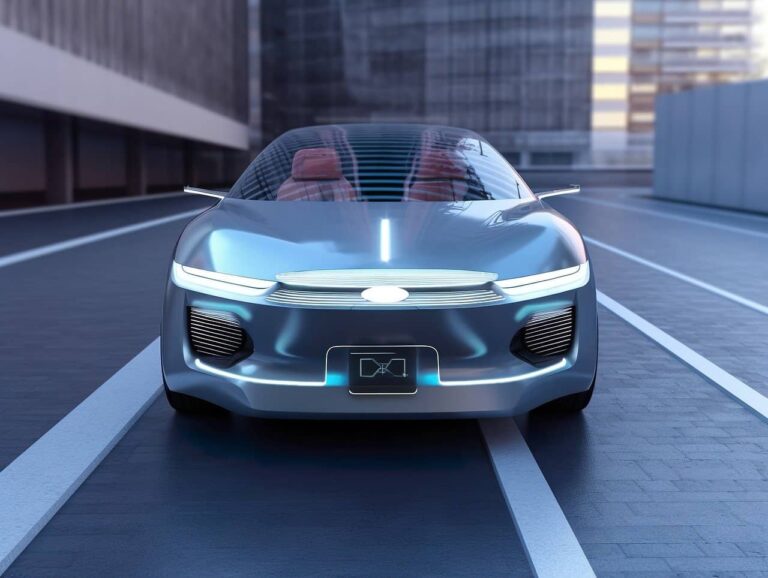Driverless cars, once a futuristic dream, are steadily becoming a reality. These autonomous vehicles promise to revolutionize our transportation systems. Yet, this emerging technology is a source of excitement and apprehension for many.
A telling survey by Budget Direct Motor Insurance uncovered a striking fact: many people are hesitant to embrace driverless cars. This mixed reception raises a crucial question: are autonomous vehicle concerns justified? To address this, we delve into a comprehensive exploration of the advantages and disadvantages of driverless cars, aiming to demystify this technology and its potential impact on our lives.
Table of Contents
Pros of autonomous vehicles
These are the main pros of self-driving cars:
Economic benefits
The integration of autonomous cars into our transport system holds significant economic promise. In Australia, for example, road crashes cost the economy about $30 billion annually, not counting societal costs. Even a modest 5% reduction in crashes could save the country millions yearly.
Safety
Vehicle safety has improved dramatically, reducing road fatalities from 30 per 100,000 people to just 8 over the last 30 years. However, human errors remain a constant risk. Autonomous vehicles, by eliminating these errors, have the potential to further reduce the rate of road fatalities.
Accessibility for those who cannot drive
In many parts of the world, many people are unable to drive due to age or disability. Driverless cars remove the need for driver’s licenses or tests, making driving technology accessible to all, and enhancing mobility without compromising safety.
Quicker commute times
Autonomous cars promise to streamline our commutes by sensing and communicating with each other, potentially making bumper-to-bumper traffic jams obsolete. Their automatic braking functions will prevent frequent accidents and allow for consistent spacing between vehicles. This could lead to increased speed limits, as the likelihood of crashes diminishes, ensuring quicker and smoother travel.
Environment, air quality, fuels/electric cars
The push for driverless cars aligns with a shift towards electric power over combustion engines. The natural driving style of these vehicles, characterized by minimal heavy acceleration and braking, conserves power. This change is set to make autonomous cars much more environmentally friendly than their petrol-powered counterparts, benefiting air quality and fuel efficiency.
More time to enjoy the view
For many, driving is mundane, filled with daily commutes and routine errands. Autonomous driving, however, transforms this experience. The time usually spent focusing on the road can be redirected towards more enjoyable activities, like catching up on work, playing a game with the family, or indulging in a favorite TV show. This evolution in driving significantly enhances how we spend our time in transit.
Read also: Will self-driving cars be reality soon?
Cons of autonomous vehicles
The following are the main cons of self-driving cars:
Increase of vehicles affecting congestion
Driverless vehicles, while accessible, might lead to more cars on the road. This increase could occur as individuals previously unable to drive, like the elderly or disabled, begin using personal vehicles. Consequently, this surge in vehicle numbers might worsen traffic congestion.
Unknown consequences of glitches
Like all smart devices, autonomous vehicles are not immune to hacking or glitches. The specific safety risks and consequences of such technical failures are uncertain. Additionally, the reliance on sensors and signals for external communication opens up the risk of remote hacking, posing a significant security concern.
Loss of jobs
The advent of driverless technology could have a substantial impact on employment. In places where people earn their living by driving, including taxi drivers, truckers, ride-share drivers, and delivery personnel. The widespread adoption of autonomous vehicles could jeopardize these jobs.
Expenses
The initial cost of autonomous cars is expected to be high, given the extensive research and development involved in their creation. This expense means that the technology might not be immediately accessible to the average person, delaying its widespread adoption.
The unknowns of driverless cars
The introduction of autonomous cars brings with it a host of unforeseen implications. In case of accidents, determining fault becomes complex. Currently, many country laws do not recognize automated systems as legal drivers, leaving the human driver liable.
Moreover, the adaptation of car insurance policies to encompass driverless features, such as auto-emergency braking or lane-keeping assist, is crucial. These changes could significantly affect insurance claims and legal outcomes. As we progress towards a more automated future, these gray areas in insurance and legal responsibility will require careful navigation and clear guidelines.
Read also: The automaker that from 2030 on will sell only electric cars












